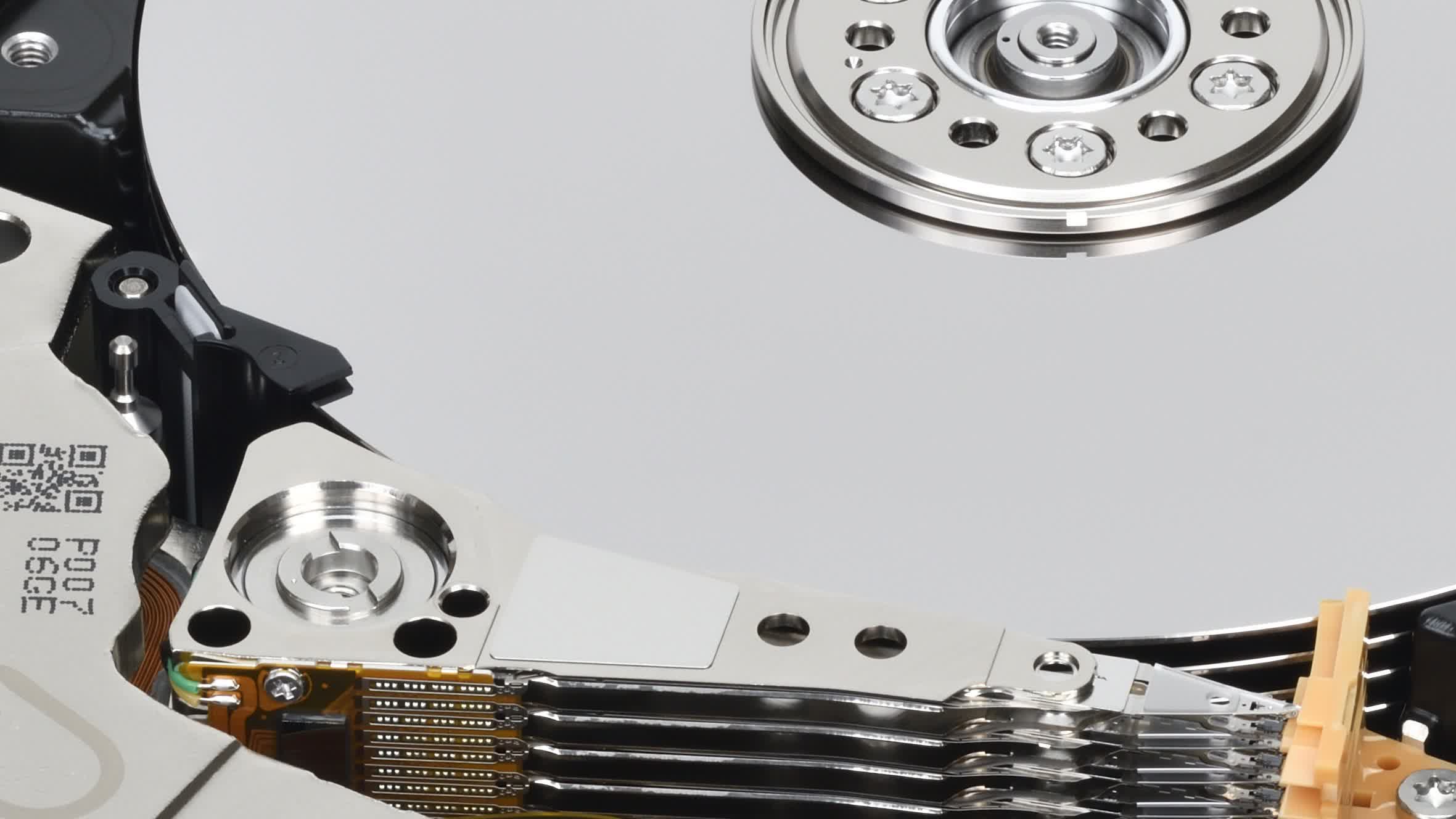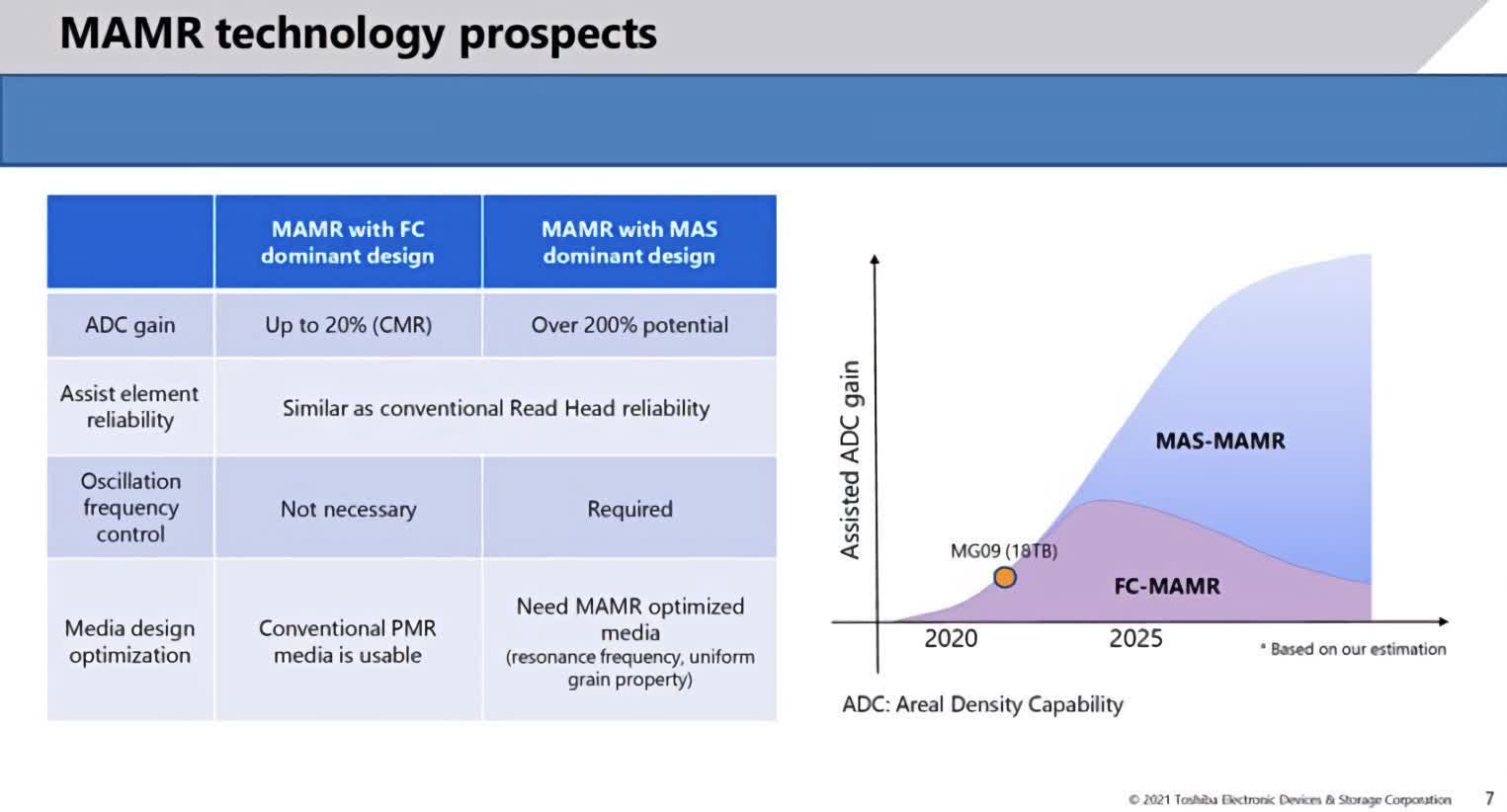In brief: Toshiba and Showa Denko have recently unveiled their plans for advancing hard disc drive capacity. Along with Western Digital and Seagate, they are betting on different magnetic recording technologies in hopes of releasing 30TB drives in a few years.

Last week Toshiba unveiled its 18TB MN09 series NAS hard drive, which uses a new kind of Microwave-Assisted Magnetic Recording (MAMR) technology. The company’s Flux Control MAMR allows for greater density on each hard drive platter. It has a speed of 7200rpm, a 512MB buffer, and a transfer rate of 268 MiB/s.
Soon after the MN09’s unveiling, Showa Denko announced it’s working with Toshiba on hard drives using Microwave-Assisted Switching (MAS) MAMR to increase capacity further, eventually planning to reach 30TB. This technology uses a strong magnetic oscillation effect to record data on a much narrower track than earlier forms of MAMR.

Western Digital hailed MAMR in 2017, when it said it could have 40TB hard drives by 2025. Earlier this month though the company’s CEO spoke about eventually reaching 30TB with density-increasing technologies like ePMR, SRM, and HAMR. He didn’t mention MAMR at all. WD already used OptiNAND, a new metadata storage method, to release a 20TB drive last month.
Western Digital hailed MAMR in 2017 when it said it could have 40TB hard drives by 2025. Earlier this month, the company’s CEO spoke about eventually reaching 30TB with density-increasing technologies like ePMR, SRM, and HAMR. He didn’t mention MAMR at all. Western Digital already used OptiNAND, a new metadata storage method, to release a 20TB drive last month.
Seagate launched a 20TB drive last year using HAMR and wants to reach 30TB by the middle of this decade. Seagate even thinks it can hit 100TB by 2030.
https://www.techspot.com/news/92653-toshiba-unveils-18tb-hard-drive-joining-race-30tb.html